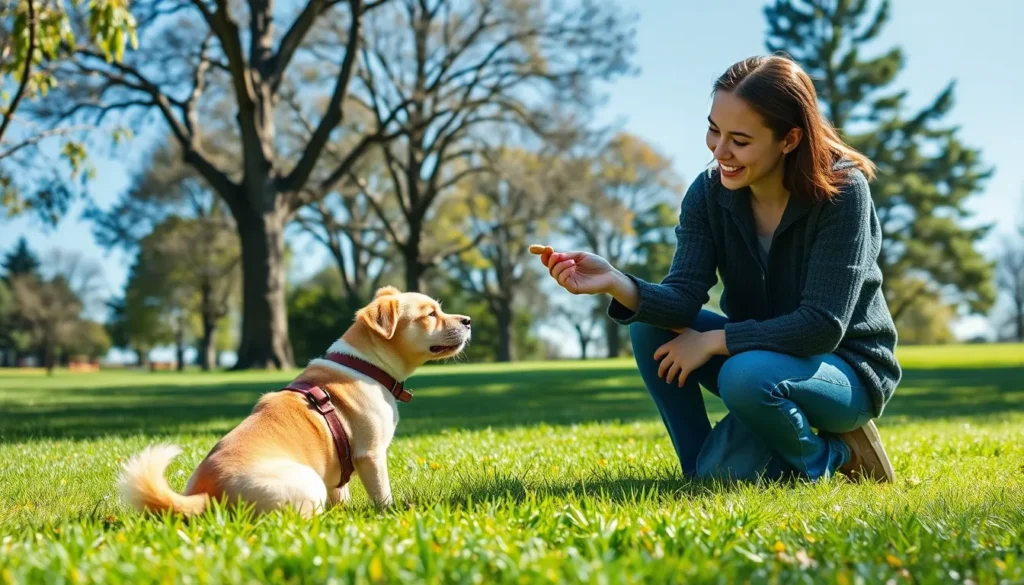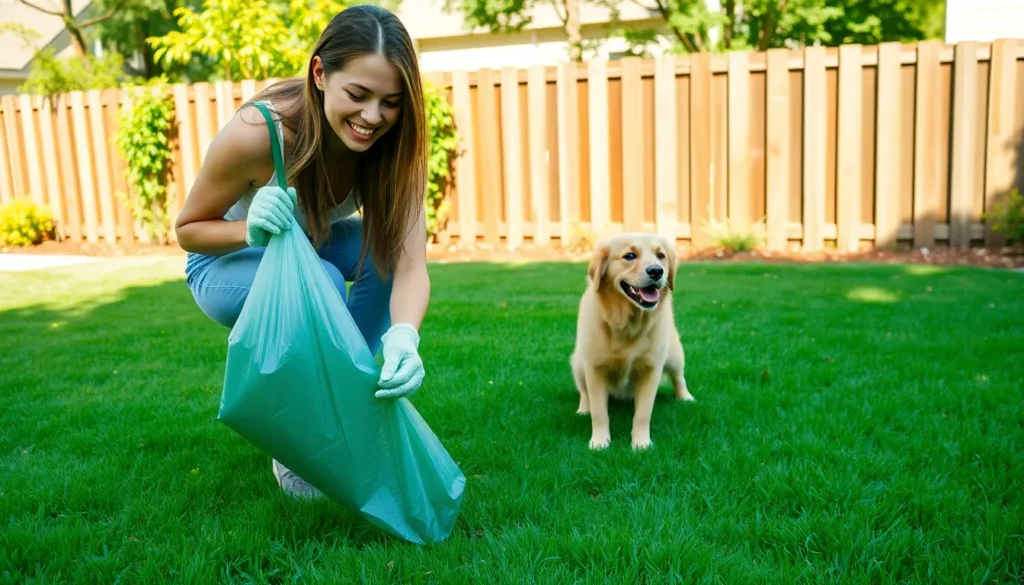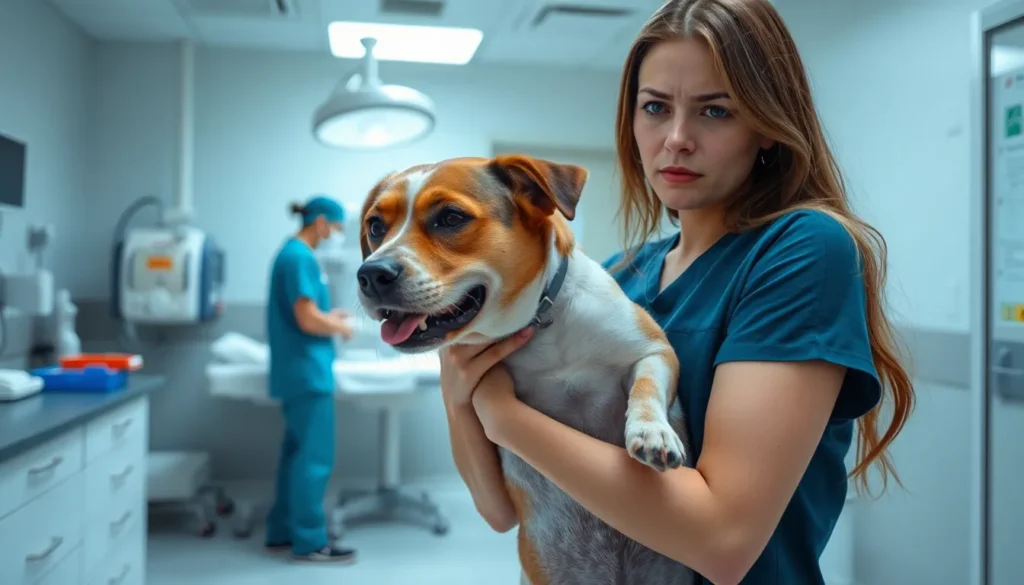Table of Contents
ToggleBringing a puppy into the home is an exciting adventure filled with joy and companionship. However, establishing a consistent routine is crucial for a puppy’s development and well-being. A well-structured daily schedule not only helps the puppy feel secure but also lays the groundwork for good behavior and training.
From feeding times to play sessions and potty breaks, each element of a puppy’s routine plays a vital role in shaping its personality and habits. By understanding the importance of these routines, new puppy owners can create a nurturing environment that fosters healthy growth and strengthens the bond between them and their furry friend.
Importance Of Puppy Routines
Establishing a routine for puppies plays a crucial role in their development and overall well-being. A structured daily schedule fosters security and encourages positive behaviors.
Establishing Structure
Establishing structure through routines sets clear expectations for a puppy. Routines help puppies understand when to eat, play, and relieve themselves, making transitions smoother. Consistent timing aids in developing discipline, as puppies learn to anticipate activities and respond more reliably. For example, regular mealtimes can prevent overeating and associated digestive issues. A defined daily schedule promotes a sense of security, reducing anxiety and uncertainty in new environments.
Benefits For Development
Benefits for development come from maintaining a routine that supports physical and mental growth. Structured playtime stimulates social skills and encourages proper interaction with other dogs and people. Regular potty breaks reinforce good behavior by associating the outdoors with relief. Additionally, consistent training sessions instill obedience and enhance learning capabilities. For instance, daily commands practiced during set times improve retention and responsiveness. Routine not only fosters essential skills but also strengthens the bond between the puppy and owner through shared experiences.
Daily Routine For Puppies

A structured daily routine greatly benefits puppies, providing them with security and stability. Each part of the day serves specific purposes that contribute to their overall development.
Morning Activities
Morning activities kick off the day effectively. Feeding the puppy at the same time ensures consistent nutrition and promotes a healthy digestive system. After breakfast, a short walk allows for exercise and potty training reinforcement. Following the walk, engaging in brief training sessions stimulates learning and enhances the bond between the puppy and owner. Incorporate playtime during these morning hours to encourage social interaction and physical activity.
Afternoon Playtime
Afternoon playtime focuses on energy release and mental stimulation. Schedule interactive play sessions, such as fetch or tug-of-war, to engage the puppy in physical activity. This play can last around 30 minutes, allowing for bonding and fun. Include puzzle toys or chew items that challenge the puppy’s intellect and keep them entertained. Furthermore, a mid-afternoon potty break reinforces good habits and helps prevent accidents indoors.
Evening Wind Down
The evening wind down helps signal to the puppy that the day is concluding. Establish quiet time by dimming lights and reducing noise levels around the home. Dinner should occur at a consistent time, followed by another potty break to support nighttime readiness. Light play or snuggle sessions promote relaxation, while calming activities create comfort. Finally, create a designated sleeping area with a comfortable bed, providing a cozy space for the puppy to rest and rejuvenate for the next day.
Essential Components Of Puppy Routines
A structured daily routine ensures optimal development for a puppy, covering key areas such as feeding, training, and exercise. These components work together to establish good habits and promote well-being.
Feeding Schedule
Feeding times play a crucial role in a puppy’s routine. Regular meal times, typically two to four times a day depending on the puppy’s age, establish a predictable pattern. Consistency in portion sizes and feeding locations fosters security. Puppies thrive on a balanced diet, containing essential nutrients that support growth and energy levels. Monitoring water intake is also essential, ensuring hydration throughout the day.
Training Sessions
Training sessions create opportunities for learning and behavioral reinforcement. Short, frequent training sessions, lasting between 5 to 15 minutes, enhance focus and retention. Incorporating basic commands like “sit,” “stay,” and “come” helps establish a foundation for good behavior. Positive reinforcement, such as treats and praise, strengthens the learning process. Regular training not only boosts obedience but also builds confidence and strengthens the bond between the puppy and owner.
Exercise Opportunities
Exercise opportunities are crucial for a puppy’s physical and mental well-being. Daily walks, ranging from 20 to 30 minutes, provide physical activity essential for energy release. Structured playtime, including games like fetch or tug-of-war, promotes engagement and develops social skills. Incorporating mental stimulation through puzzle toys challenges a puppy’s cognitive abilities, preventing boredom. Providing a mix of both physical and mental activities ensures a balanced routine beneficial for overall health.
Socialization Within Routines
Socialization plays a vital role in a puppy’s development, and integrating it into daily routines maximizes its effectiveness. Structured interactions and exposure ensure a well-adjusted, confident dog.
Interactions With Other Dogs
Interactions with other dogs are essential for developing social skills. Schedule playdates or visits to dog parks where puppies can interact with dogs of various ages and sizes. Encourage positive encounters using supervised play sessions, which help puppies learn appropriate behaviors. Monitor body language to ensure comfort and safety. Gradually increasing exposure to different canine personalities promotes adaptability and reduces fear-based reactions in social settings.
Exposure To New Environments
Exposure to new environments enhances a puppy’s confidence and adaptability. Include visits to different locations, such as pet-friendly stores, parks, or busy streets, in daily routines. During these outings, allow the puppy to explore safely while ensuring a secure leash hold. Use these experiences to reinforce calm behavior through treats and praise. Gradual exposure to diverse sounds, sights, and smells fosters resilience, preparing puppies for various situations they may encounter as adults.
Adjusting Routines As Puppies Grow
Adjusting routines as puppies grow is essential for their development and well-being. As they mature, routines need to evolve to meet changing needs and energy levels.
Transitioning To Adult Routines
Transitioning to adult routines involves gradually modifying existing schedules as puppies develop. At around six months, puppies generally shift from frequent meals to two meals per day. Training sessions should extend in duration and complexity to match their increasing attention spans, incorporating more advanced commands and skills. Exercise needs also change; while younger puppies may require short bursts of activity, adult dogs benefit from longer walks and more vigorous play. This gradual transition allows for smoother adaptations, reinforcing good behavior through consistent practices.
Recognizing Individual Needs
Recognizing individual needs is vital for tailoring routines that suit each puppy’s personality and temperament. Some puppies may thrive on a more structured schedule, while others require flexibility. Monitoring energy levels and behavioral cues helps in determining appropriate activity durations. For example, high-energy breeds may need additional playtime and mental stimulation, while calmer breeds might enjoy shorter, more leisurely activities. Adjusting routines based on a puppy’s preferences ensures a happier, healthier pet.
Establishing a consistent routine for a puppy is essential for their growth and well-being. A structured daily schedule not only provides security but also reinforces good behavior and discipline. By integrating regular feeding times, play sessions, and socialization opportunities, owners can foster a nurturing environment that supports their puppy’s development.
As puppies grow, adapting routines to meet their changing needs ensures they continue to thrive. Monitoring energy levels and adjusting activities allows for a personalized approach that enhances the bond between puppy and owner. With a well-planned routine, owners can set their puppies on a path to becoming well-adjusted and happy adult dogs.








